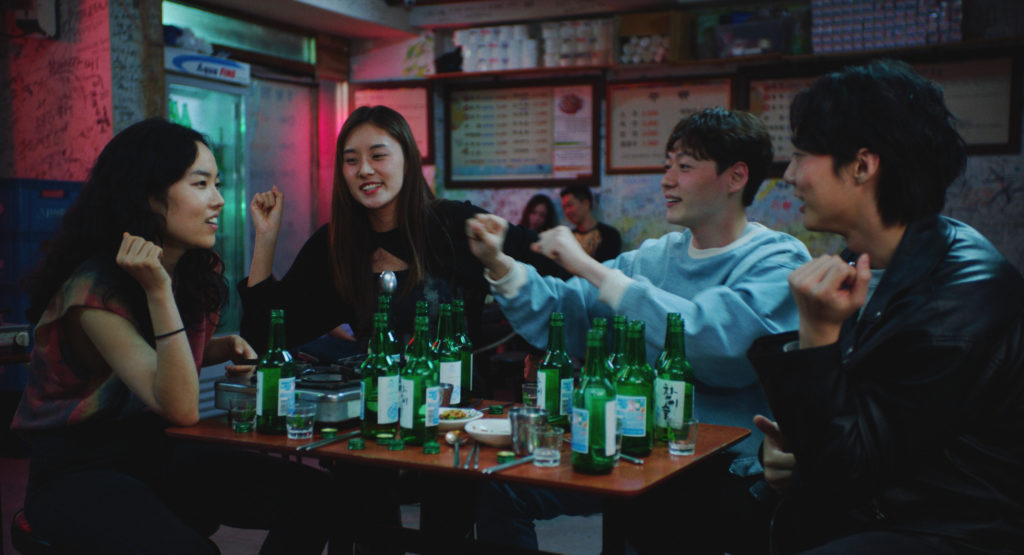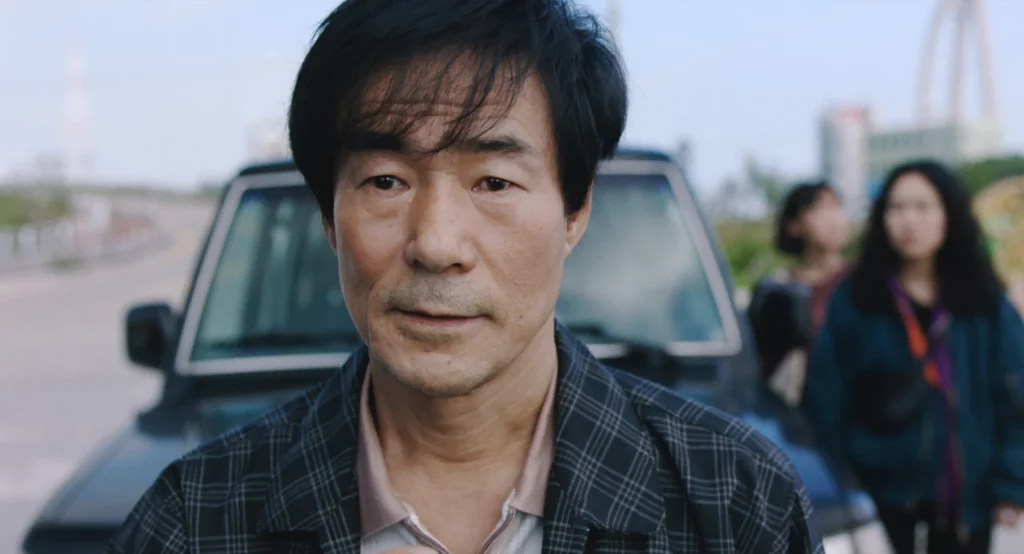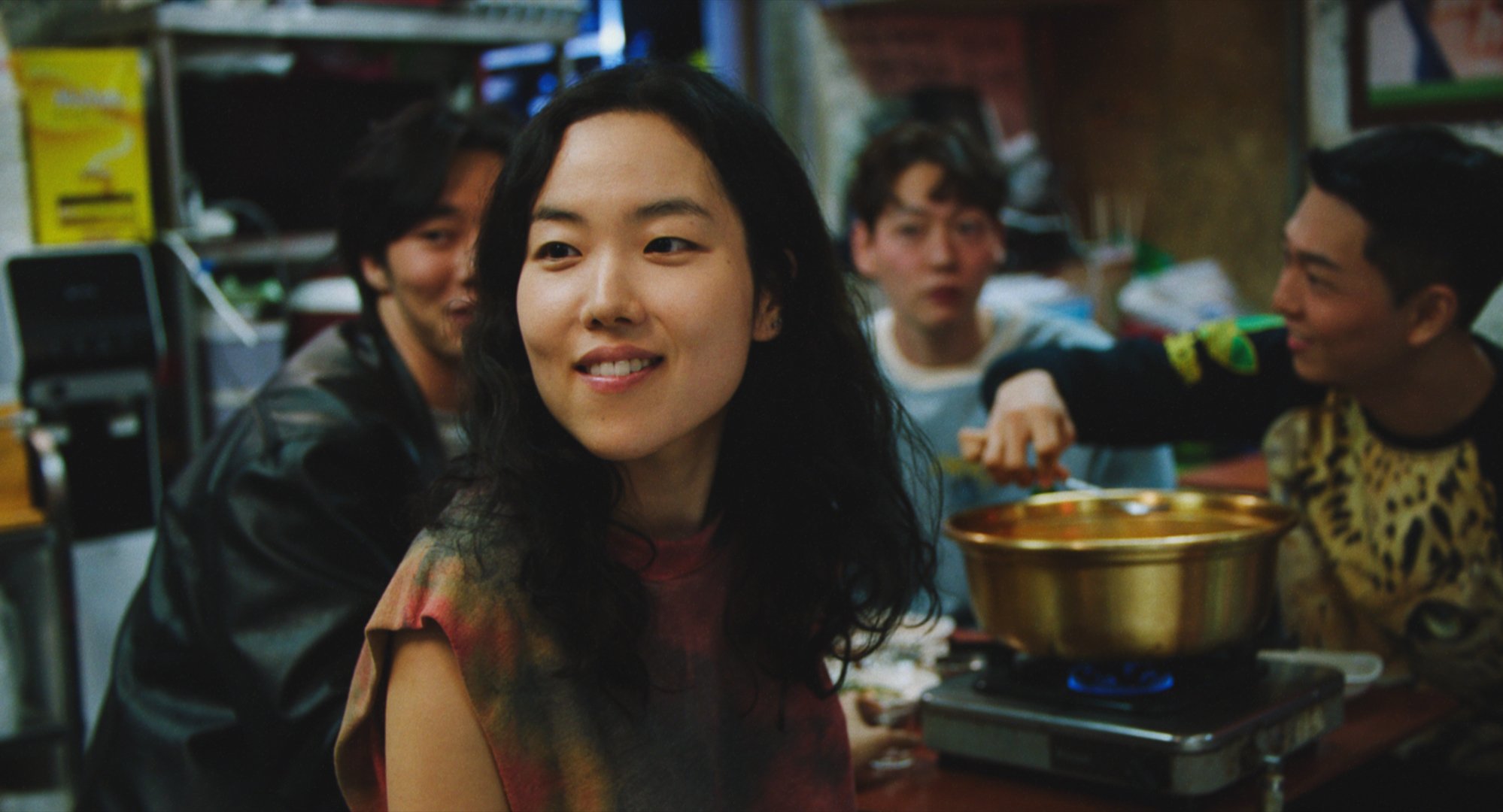A unconventional young woman searches for her birth parents in Return to Seoul, an inquisitive essay on the evolving nature of self-identity and actualization. How do we define ourselves? Where do we belong? Can we continually reinvent ourselves? These are the questions posed by Cambodian-French filmmaker Davy Chou, informing an offbeat and frequently surprising character study spanning eight years in the life of a most original movie character.
That character is named Frédérique “Freddie” Benoît and is played with great enigmatic vitality and confidence by Korean-French artist and first time actress Ji-Min Park. Like her real-life counterpart, Freddie is Korean-born but raised in France, and has returned to Seoul a stranger in a strange land, one where a short trip becomes a near decade of searching for herself as much as for those who gave her away.
Impulsive, often selfish and filled with wanderlust, Freddie arrives in Seoul without a real agenda—though she soon decides to train her focus on her infant adoption circumstances—and blows through friends and lovers with cheerful self-possession. She quickly gets close to people, like hotel clerk and supportive new friend Tena (Guka Haan) serving as her Korean translator, spends the night with a lovelorn young suitor and eventually drops them both. Her charisma and charm are key; what no one sees is that for impetuous Freddie, the relationships are merely temporary and transactional.

The definition of a free spirit, she comes down to Earth on a visit to the local adoption agency that puts her in touch with her birth father (Oh Kwang-rok), who works hard to assuage his guilt and be a dad, welcoming Freddie to his extended family. For her part, Freddie isn’t interested, yet her clear and voracious need for connection finds her in after hours Seoul bars, knocking back shots, her body pinballing around dance floors and tables, flailing toward connection with music and strangers.
In a picture separated into four sections, we rejoin Freddie some period later where, after meeting a French businessman (Louis-Do de Lencquesaing) on a dating app and agreeing to a tryst, she ultimately takes a job working for his arms dealing outfit. She’s still in Seoul, still searching for something. But what? Despite a brief video call with her adoptive mother in France, she is uninterested in returning home.
In a later chapter, Freddie is a older, wiser and sophisticated, has a new boyfriend, Maxime (Yoaan Zimmer), and has made peace with her biological father and his supportive wife (Heo Jin). A terrific scene finds them out to dinner where father and daughter surprise each other—she shares news of her professional vocation and he reveals a piece of music he has composed in a late life turn toward creative actualization. While Freddie may have matured, she bluntly informs Maxime, “I could wipe you from my life with the snap of my fingers.” He never appears in the film again.

The film again flashes forward to a powerful scene of delayed familial gratification featuring an extended close-up of Park that is perhaps her only moment of true vulnerability. In this moment, the stars beautifully calibrated reaction suggests that despite Freddie’s performative joie de vivre and apparent professional successes, inside she is still a woman in flux, always on the run and, deep down, immensely sad.
And there is more in a surprising coda featuring yet another reinvention. By the time Return to Seoul gets where it is going, we realize the film has offered no labored conclusions or pat resolutions, and that Freddie, who may have filled in the gaps in her lineage may forever have missing pieces. What will happen next? What will future chapters bring? If Chou knows he certainly doesn’t let on a film that eschews easy resolutions in favor of its edges-and-all character living in each and every moment.
4 stars



